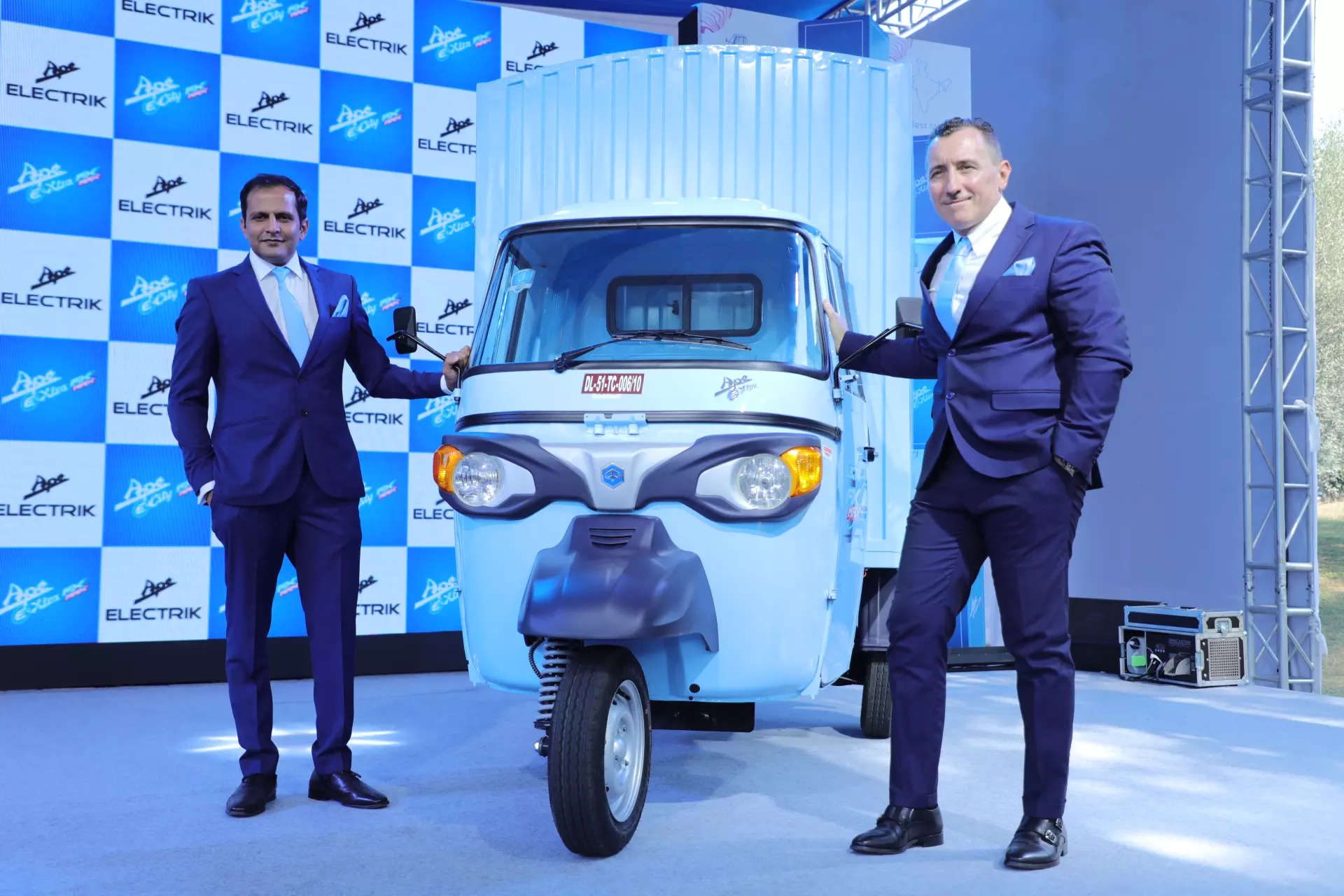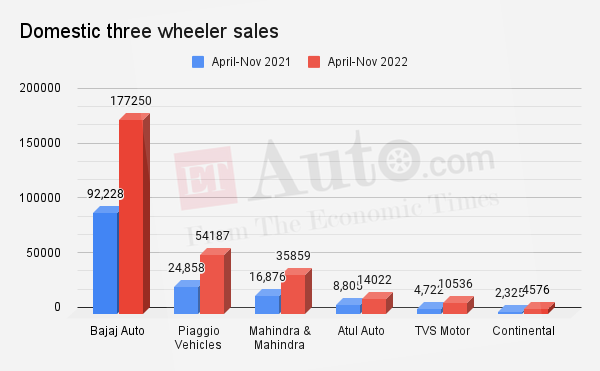
New Delhi:
Piaggio Vehicles Private Limited (PVPL), a subsidiary of the Italian Piaggio Group, recently launched two fixed battery EVs – the E-City FX Max passenger and E-Xtra FX Max cargo in the Ape range of three wheelers. With this launch, the company said its Ape range of three wheelers is complete and it is not looking to launch any more products next year.“We have launched new products in the last two years. Now we want our consumers to absorb them. So no new products are scheduled for launch in 2023,” Diego Graffi, Chairman and MD, Piaggio Vehicles, said.
He estimates that EVs are expected to contribute to 37%-40% of the three wheeler industry volumes by 2026.
EVs are expected to contribute to 37%-40% of the three wheeler industry volumes by 2026~
According to him, the industry expected 2022 to be a year of consistent growth after two years of COVID pandemic. However, commodity prices played the spoilsport. Now, with the improvement in prices, positivity and stability is expected in the industry during 2023.
“The commodity and raw material prices have softened in the past 2-3 months and we expect this trend to continue. If any unexpected events like the Ukraine-Russia war does not happen, I don’t see any major challenge for the next 4-6 months. So whatever work could not be done in 2022 will happen in 2023,” he said.
The three-wheeler maker has a product portfolio in petrol, diesel, CNG, LPG and electric for both cargo and passenger segments. It targets to expand its network to 408 cities next year, up from 117 cities now.
Increased focus on EVs for 2023
In the upcoming calendar year, the company plans to expand its export markets and make India a hub for its electric three wheelers. It is looking at markets like ASEAN with a focus on Philippines and Indonesia, SAARC including Sri Lanka, Nepal, and Bangladesh, AFRICA including Kenya, Egypt and South Africa, and West Africa through Nigeria.
Piaggio is already exporting its internal combustion engine (ICE) three wheelers from India to over 50 countries including South East Asia, Middle East Asia, and Africa.
Piaggio Vehicles has also signed Memorandum of Understanding (MoUs) with EV players like SUN Mobility, Three Wheels United, Zyngo, City Link, Amplus Solar, Magenta Mobility, MoEVing, and MBSI to deliver 24,000 commercial EVs in a phased manner across India in 2023.
Over 10,000 EVs will be deployed in partnership with SUN mobility for cargo and passenger segments in over 14 cities~
“Of these, over 10,000 will be deployed in partnership with SUN mobility for both cargo and passenger segments in more than 14 cities in India,” it said.
The company sees supply chain issues to be the only challenge for the upcoming year. “We are trying to localise our components. For 2023, we expect the goods carrier segment of three wheelers to reach pre-Covid levels and passenger carrier to keep on the progression that we have seen in the past 3-4 months.”
Graffi expects the three wheeler industry to clock domestic sales in the range of 4 lakh to 4.5 lakh units by FY24. The sales volumes for the current fiscal year (YTD) stands at 2.96 lakh during April-November 2022 period, as against 1.49 lakh units in the corresponding period of last year.
When asked if Piaggio sees itself as becoming the largest three wheeler maker in the domestic market in the next three years, the company’s CMD said, “In India, we are one of the Top 3 ICE OEMs. Hopefully the entire industry will grow in numbers and we will also grow with the industry.”
Technological advancements
Like the rest of the auto industry, Piaggio is working on new and emerging technologies including the building of flex-fuel vehicles. “We are starting to build them. We are in the initial stage and taking advantage from the South America experience in Brazil. The deadline for flex fuel vehicles is not fixed, we should be able to introduce them in the next 3-4 years.”
We should be able to introduce flex fuel vehicles in the next 3-4 years~
For battery technology too, the company is looking at new compositions. However, it is clear that it does want to venture into battery manufacturing. “We don’t see the need to invest in component manufacturing like batteries, but we are working with our partners on exploring newer technologies like hydrogen fuel cells, but it will also take at least three years.”
Piaggio has a manufacturing plant at Baramati in Maharashtra, with an installed annual production capacity of over 3,80,000 commercial vehicles and 1,50,000 two-wheelers. Its engine plant has a capacity of 2,00,000 units. It has a workforce of over 4000 people, comprising engineers, R&D specialists, plant workers, sales, service and marketing professionals.
“As of now, the capacity is more than enough and we do not see the need for expansion for the next 3 years for sure. It is a modular facility which can be expanded easily,” said Graffi.
Also Watch:
















